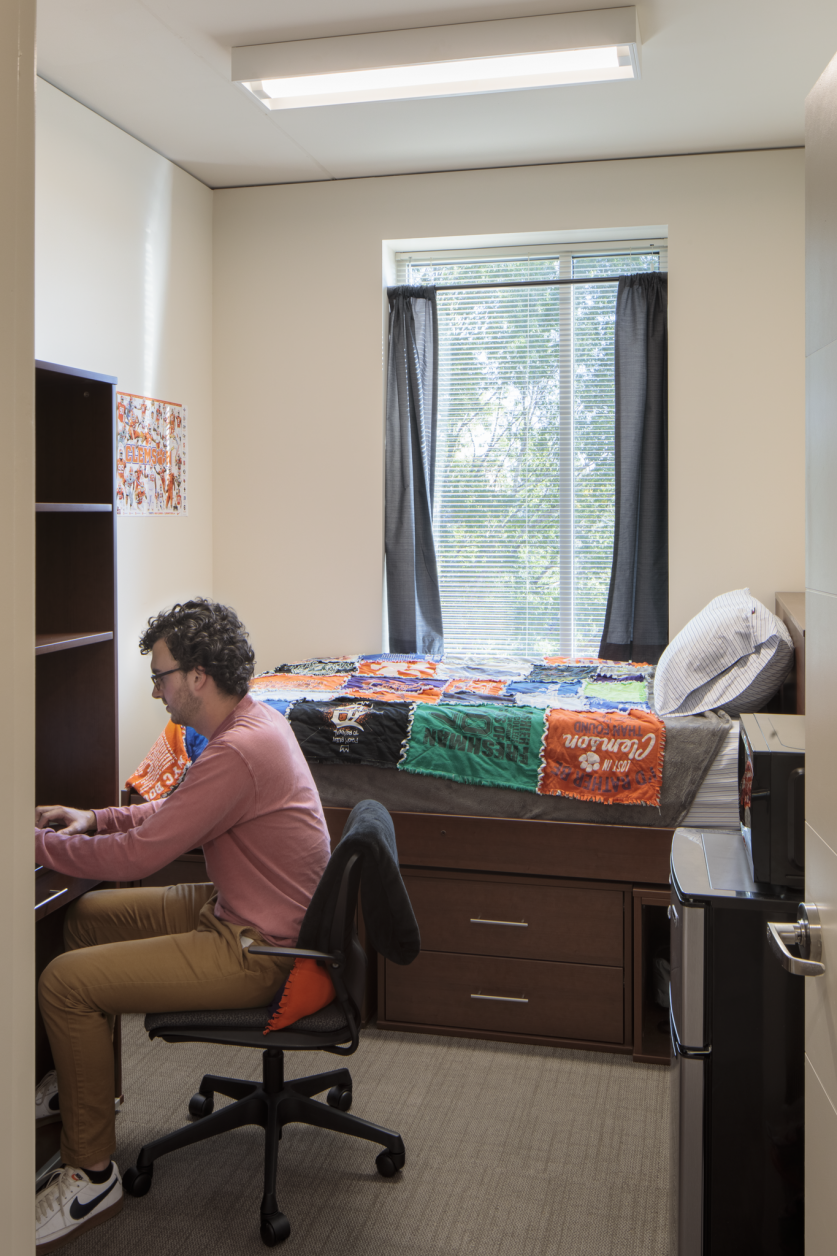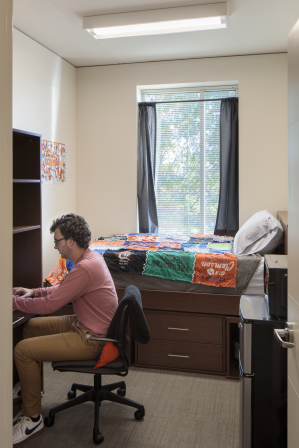Clemson Home recognizes that living with a roommate can be challenging. Some relationships are great with seemingly low effort – you just click. But many roommate relationships have more bumps in the road. They require all roommates to set clear expectations and be able to navigate the conflict that occurs when those expectations aren’t met. Strong roommate relationships are built on good communication, setting boundaries, and compromise.
Many students need help broaching these conversations and exercising their conflict negotiation skills. We want to help you navigate situations where re-setting expectations or helping to address specific concerns may lead to a more positive living experience for all roommates.
Roommate Agreements
All roommate(s) are required to complete a Roommate (or Suitemate) Agreement to establish expectations for your shared living space. Roommates are obligated to follow the University’s Code of Conduct and Housing Contract’s Rules & Regulations. Additionally, residents may wish to share with one another reasonable expectations for their space that include, but are not limited:
- Cleanliness
- Social vs. study times
- Expectations about guests
- Communication methods
- How to address conflict if it arises
If conflicts arise amongst roommate(s), it is important to productively engage in conflict resolution strategies and re-establish appropriate shared expectations for the residents’ living space. You may consider which of these decisions might help you move forward if you are experiencing conflict or tension in your room, or apartment.
Conflict Resolution
Clemson Home offers comprehensive conflict resolution support and resources based on your needs. You can access Roommate Mediation or Consultation in the Forms section of the Clemson Home Portal.

Self-Resolution
May involve something minor that is more of a preference than an expectation of your shared space. Can you let it go? Can you calmly voice your concern and easily resolve the situation? E.g., “Can you please ask me before taking a snack from my drawer? I’m happy to share but want to make sure that I don’t run out before I can go to the store.”

Consultation
Maybe your roommate has crossed some boundaries that were established in your roommate agreement. E.g., guests, lights out. You feel comfortable handling it on your own if you can talk it out with someone else first. We can help coach you through how that conversation might sound. Select the Consultation option in the Mediation & Consultation form to begin the process.

Mediation
Sometimes a conflict can benefit from a neutral third party who can facilitate a conversation around your issues or concerns. Maybe your roommate(s) are also feeling the tension. A neutral party puts you all on equal footing. No one must take charge of starting the conversation alone. We provide formal conflict mediation with highly trained mediators. Select the Mediation option in the Mediation & Consultation form to begin the process.
Other Concerns
What if my concerns don’t fit one of these options? Your community staff (Residential Community Mentor, Graduate Community Director, Community Director) can help determine what the next steps may be.

